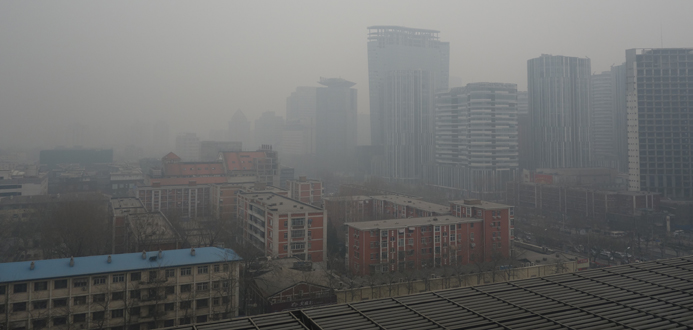OpenAQ pilot tackles urban air pollution
- February 8, 2021
- Steve Rogerson

OpenAQ, a Washington-based non-profit NGO aiming to build the world’s largest repository of air quality data, has introduced a pilot platform integrating low-cost sensors that will enable citizens to track air quality and fight air pollution in their local communities.
It is estimated that 90% of the world suffers from harmful levels of air pollution, with the problems particularly acute in urban areas in the least well-off communities. A recent investigation into the largest cities in the world showed that the average annual level of air pollution was nearly four times higher than World Health Organisation guidelines. The worst affected cities were in Asia – Lahore (Pakistan), Delhi (India), Dhaka (Bangladesh), Ahmedabad (India) and Xi’an (China).
The data illustrate the stark global inequalities of air pollution, which could be addressed by providing low-cost pollution sensors to communities across the world.
A coalition of NGOs is addressing air pollution inequality through an open source data platform using low cost air sensors. Developed with the Environmental Defense Fund (EDF), the pilot provides a portal for research scientists, NGOs and individuals to access both reference grade air quality data across the world as well as newer, low-cost sensor data.
The platform brings together low-cost sensor air quality data from EDF’s Air Quality Data Commons as well as from Purple Air, HabitatMap and Carnegie Mellon University. The OpenAQ platform already houses more than 0.75bn data points from more than 11,000 stations in 99 countries. The new pilot provides a dashboard for searching and understanding low-cost sensor data, as well as all the data previously available on OpenAQ’s web site and platform via an API.
The OpenAQ platform will be a resource for cities, governments and communities at a time when the effects of air pollution on public health, including the problems they present in individuals diagnosed with Covid-19, have come into sharper focus. As nations around the world plan for a recovery from the pandemic that prioritises climate change goals, tackling air pollution will become an important priority. The data platform can give governments and communities a tool to track these efforts and inform policies and programmes.
Over half of the world’s population has no access to official government data on air quality, according to a study published by OpenAQ. The study examined 212 countries and found 109 (51%) governments were not producing air quality data of any major pollutants, while 103 were.
Low-cost sensors are a new air quality monitoring technology that complement more traditional and expensive reference grade monitors and help address these data gaps. Low-cost sensor units can be installed by individual users, communities and governments to increase coverage and access to air quality data to a greater number of citizens, policy makers and NGOs.
“We want to encourage new, affordable solutions to monitor air quality, and bring those data to OpenAQ to increase funding and action for those communities who are most affected by air pollution,” said Jeremy Taub, executive director of OpenAQ. “It will fill important data gaps allowing communities to develop solutions to air pollution.”




